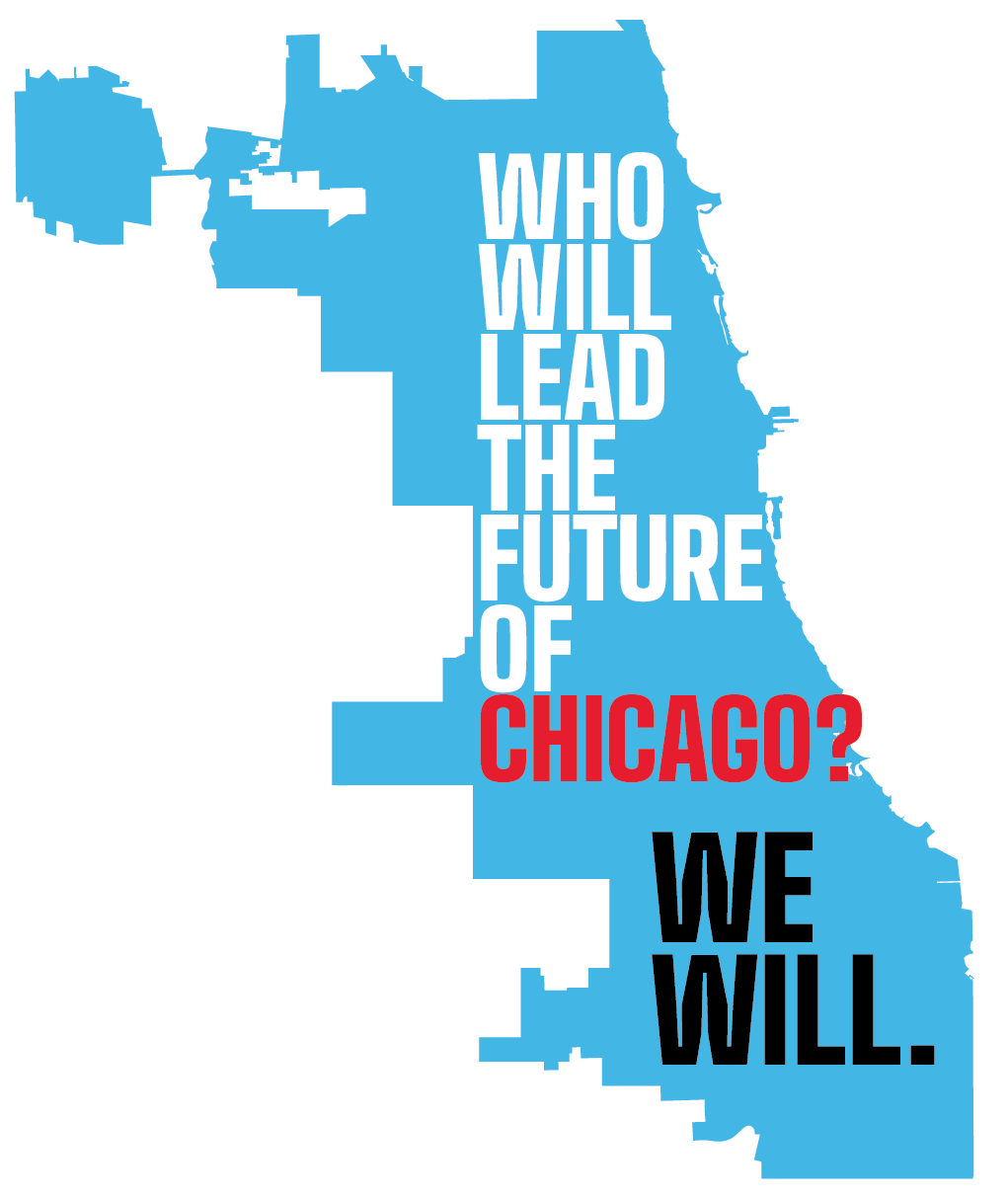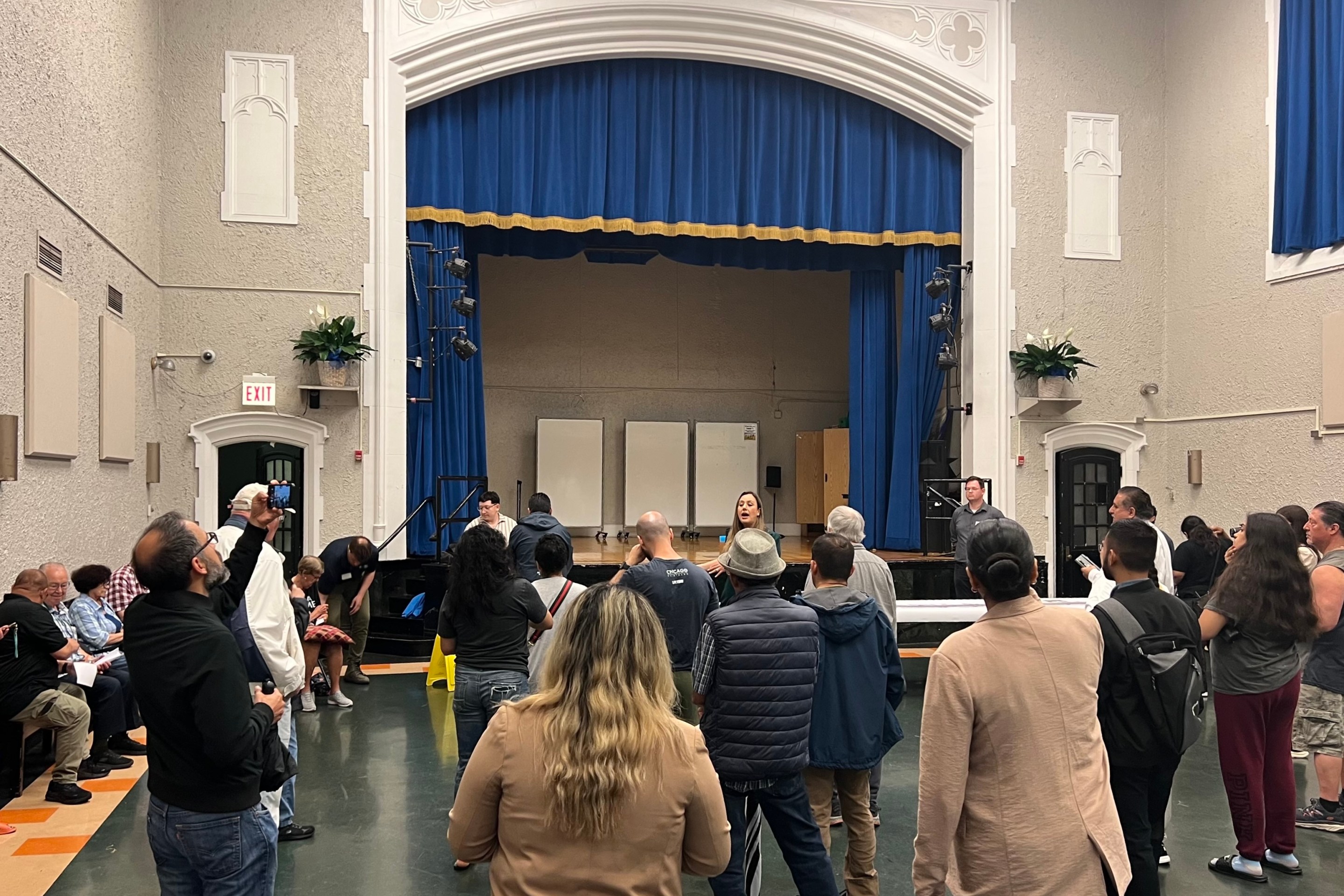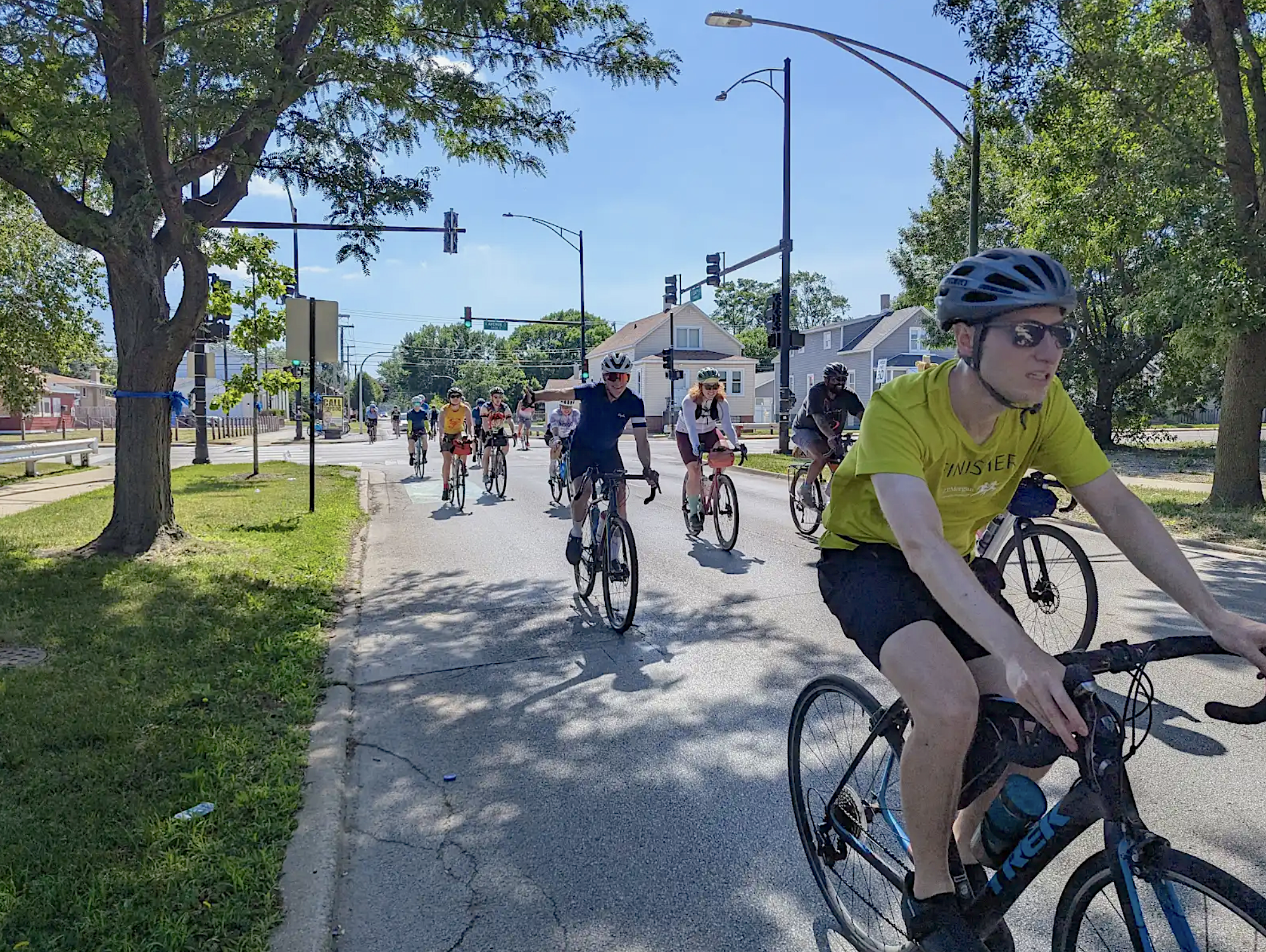Last Friday the Chicago Department of Planning and Development hosted a kickoff discussion about We Will Chicago, a new three-year citywide planning initiative. It’s the first citywide plan in more than 50 years. I am going to focus on the information shared pertaining to We Will Chicago and leave you to watch the discussion portion if you’re interested.
To inform the process for We Will Chicago, DPD staff studied citywide planning initiatives from other cities. We Will Chicago is intended to “encourage neighborhood growth and vibrancy while addressing social and economic inequities that impair Chicago’ s legacy as a global city.” According to the We Will Chicago website, “recent planning efforts in Chicago have been largely place- or policy-focused, limiting the city’s ability to comprehensively address systemic issues that impact different neighborhoods in different ways.” City officials say the new plan will allow the city to comprehensively address systemic issues based on the feedback gathered during the public engagement period.
The planners say We Will Chicago will shape and track equitable strategies around housing, community and economic development, land use, transportation, and natural resources for years to come. There are seven pillars that We Will Chicago seeks to address:
- Arts and Culture
- Economic Development
- Environment, Climate, and Energy
- Housing and Neighborhoods
- Lifelong Education
- Public Health and Safety
- Transportation and Infrastructure
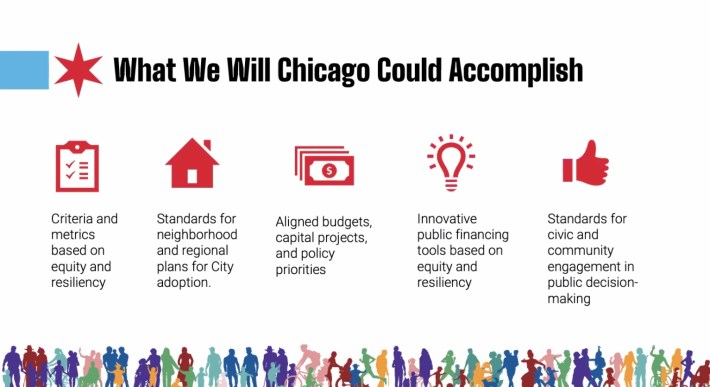
During the online discussion, DPD commissioner Maurice D. Cox provided context for the need for a citywide planning initiative. A map of income distribution within Chicago in the 1970s and 2017 was displayed. In the three decades since the last citywide planning initiative was undertaken, there has been a redistribution of community wealth from the South and West sides to communities on the North and Northwest sides. Additionally, population growth has occurred mostly downtown and on the North Side of Chicago and declined on the South and West sides. Commissioner Cox then went on to state that our peer cities such as Los Angeles, New York City, and Boston have managed to grow due to their commitment to regular citywide plans. “I think this absence of a unified vision of how we want to grow is part of the challenge we face. Coming up with a unified vision can be, I believe, a big part of the solution,” Cox said. He then discussed timeline for We Will Chicago.
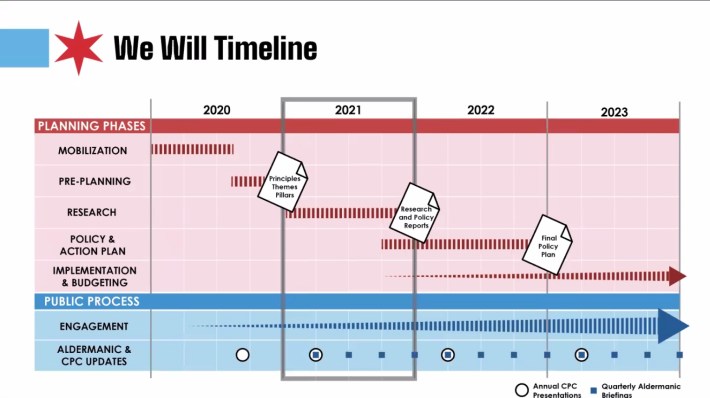
In August 2020 DPD announced the plan. Since then, the department has “planned for a plan” according to Commissioner Cox. With assistance from the Metropolitan Planning Council, DPD and other city agencies talked with over 250 residents to find out what issues Chicago residents were concerned about, their priorities, hopes, fears, and dreams. [You can learn more about this process here.] Based on the feedback from these residents, the principles, themes, and pillars of We Will Chicago were born. Cox said We Will Chicago is guided by the principles of equity and resilience. Themes that emerged from discussions with residents and working groups were:
- Historical reckoning and trust building
- Centering and embedding equity as a value and principle
- Community engagement
- Accountability
- Inter-agency and cross collaboration
These themes will guide community engagement with Chicago residents. I am most looking forward to the city creating standards for community engagement that will apply across all city departments. Equity and resiliency are to be embedded into everything the city does, according to Cox.
Candace Moore, the city’s chief equity officer, shared the definition of equity and the mission of the Office of Equity and Racial Justice. I wish we had been given a working definition of equity early on, given how often it came up. The city of Chicago defines equity as both an outcome and a process that results in fair and just access to opportunity and resources that provide everyone the ability to thrive.
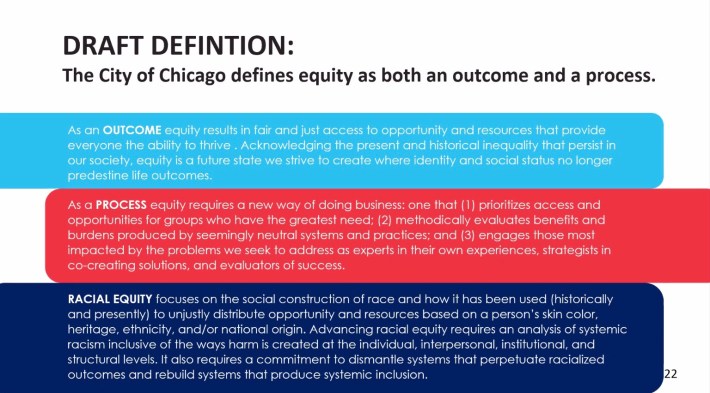
The mission of the OERJ Is to advance institutional change that results in an equitable transformation of how the city of Chicago does business. OERJ will do this by supporting city departments in normalizing concepts of racial equity, organizing staff to work together for transformational change, and operationalizing new practices, policies and procedures that result in more fair and just outcomes. The city defines equity as both an outcome and a process that results in fair and just access to opportunity and resources that provide everyone the ability to thrive.
If you would like to become involved with We Will Chicago, opportunities for input will soon be listed on the We Will Chicago website. Some of the opportunities will be paid. Applications in English and Spanish for We Will Chicago's advisory council and research teams were said to open some time this week. DP will also host neighborhood events to engage local residents.
As some of our readers may know, the city has multiple planning initiatives happening alongside We Will Chicago such as the Western Avenue Corridor Study, which Streetsblog Chicago has covered and Invest South/West. These planning initiatives will help inform We Will Chicago as well.
We Will Chicago will mainly impact younger generations of Chicagoans, considering that these plans will supposedly be implemented within the next few decades. I hope that the city is successful in reaching younger Chicagoans and getting their opinions on how they'd like to see the city development.
If you’d like to watch the kickoff discussion, you can access it on YouTube.
